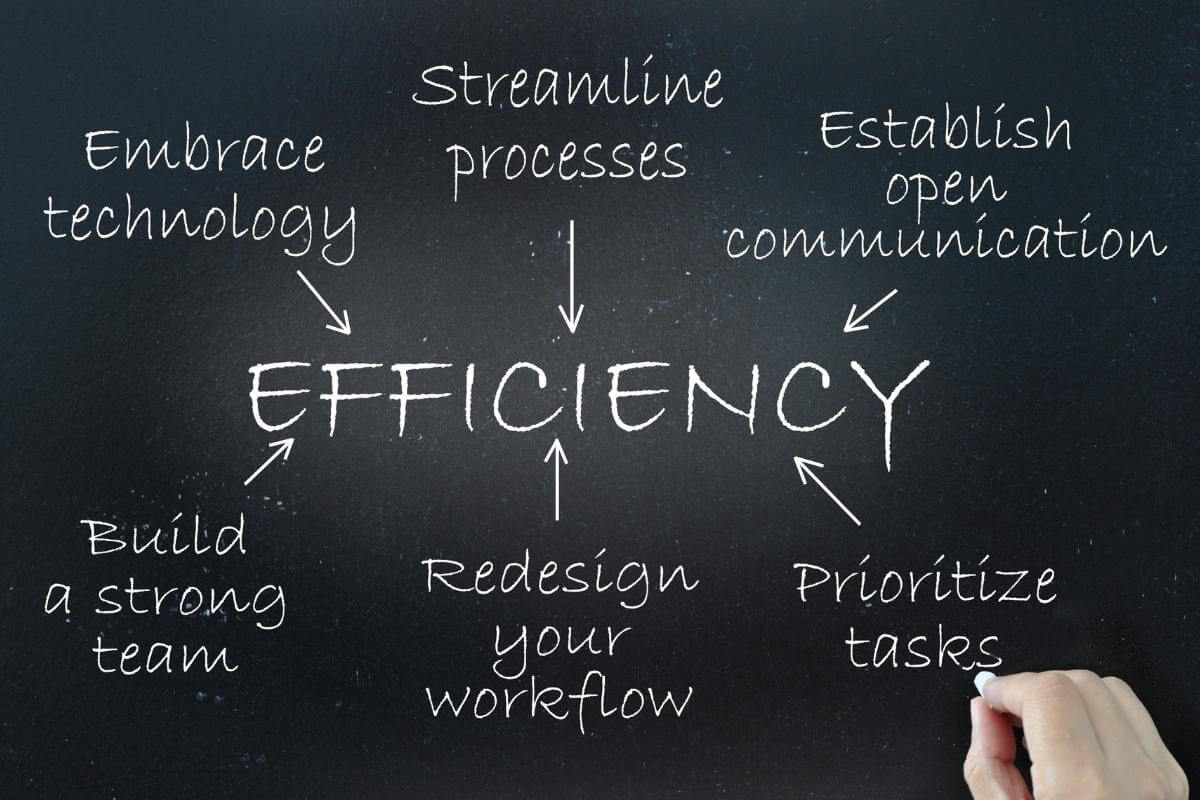Table of Contents
Robust customer service is key to attracting, winning, and keeping customers. And this applies to the e-commerce sector.
Unfortunately, a growing number of click-and-order businesses struggle to accommodate all customers, not to mention address concerns and meet consumer needs. When confronted with this obstacle, you can employ business process outsourcing (BPO). However, ensure you hire and work with a highly reliable BPO company.
Make informed outsourcing decisions. Read on to learn best practices for e-commerce customer service providers.
BPO Best Practices for E-commerce Customer Service

The BPO industry has grown exponentially in recent years. The global outsourcing market hit almost $246 billion in 2021 and could grow further until 2030 at a 9.1% compound annual growth rate (CAGR).
Businesses of all sizes have heavily relied on outsourcing. In the United States, 68% of large companies for consumer products outsource parts of their workforce operations. They believe outsourcing helps to reduce energy costs and address tight budgets.
Clutch also revealed that 37% of small companies outsource at least one business function. The BPO sector even encourages startups to outsource parts of their operations to ensure business growth and scalability.
But with numerous outsourcing options available in the market, choosing a BPO company best suited for your business can be tricky. Check whether your prospective BPO providers follow best practices to filter your options and settle on the right one. And knowing these best practices is crucial.
1. Set Business Goals
Goal setting is imperative for business. Defining your goals helps you identify what to achieve and guides you in establishing business practices. Business goals let you focus, make decisions, motivate teams, and give meaning to work.
Goal setting applies to e-commerce customer service providers. These providers must define their SMART goals: specific, measurable, achievable, realistic, and timely. However, they must align their goals with those of their clients.
When outsourcing data entry services, sales, or customer service, look for a BPO company with clear business objectives. However, make sure this service provider aligns with your business goals. More importantly, it must set critical metrics and implement processes to help reach its goals.
2. Offer 24/7 Customer Support
Most BPO companies operate 24 hours a day, seven days a week, with BPO agents on different shifts. Whether outsourcing email support, live chat or call center services, these agents are readily available to assist customers.
This BPO practice is ideal for e-commerce customer service. Amazon, for instance, employs offshoring to handle parts of its business operations. This top e-commerce brand works with business partners in different countries. Their agents report to work on different shifts to ensure 24/7 Amazon operation.
When outsourcing customer support, check whether your BPO service provider offers round-the-clock operation. Such outsourcing makes customer service fully operational all the time. Your representatives will be able to accommodate all customers and keep them satisfied.
3. Provide Round-the-Clock Security
NTT states that 55% of companies rely on third-party service providers to reduce security risks. It also notes that security is a top reason for outsourcing to a BPO company. While 32% of companies outsource to boost security, 30% do so to improve efficiency and 29% to increase performance.
In addition, NTT’s 2020 Global Managed Services Report highlights security as fundamental to smart sourcing. The report focuses on security measures, technical expertise, and actual results based on business objectives.
When looking for a third-party service provider, check what they do for business security. Make sure your hired vendor has security measures that are vital in safeguarding customer information and preventing cyberattacks. Most importantly, it must provide round-the-clock security for complete protection.
4. Establish Proper Organization and a Solid Management Team
Customer service demands prioritizing the workforce. After all, representatives assist customers, handle day-to-day operations, and ensure operational success. But it requires management support and the need to establish an effective organization.
In a BPO setup, create an organizational structure and have a solid management team. The team serves as a link between the client (e-commerce business) and the employees (customer service representatives). While the team works on meeting the client’s key metrics, they must not overlook their employees’ welfare.
For your outsourced e-commerce customer service, make sure to meet with the management team. Orient them on your business objectives, set vital metrics, and build a robust organizational structure. Most importantly, ensure constant communication and collaboration.
5. Hire the Best Employees
Customer service is a front-office function. Representatives directly interact with customers. Hence, outsourcing makes sense to boost customer interactions and improve customer experience.
Hiring the best talent is imperative. These employees must have basic knowledge and skills in e-commerce customer service. They must be open to learning.
Before taking the plunge into e-commerce outsourcing, check whether your hired BPO company has a stringent hiring process. Also, evaluate the workforce and meet with the employees. Most importantly, offer them the necessary support and assistance.
6. Build a Stable Workforce
According to Fortune Business Insights, the global customer experience management market will be worth $11.34 billion this year. More companies invest in their people on top of optimizing business processes and using technological resources. Their goal is to improve customer experience and boost customer satisfaction.
BPO companies build a stable workforce. Not only do they hire the best talent, but they also provide employees with proper training. They provide regular updates once these employees hit production and offer training programs to enhance their skills and advance their careers.
Check whether a BPO company has a stringent hiring process, extensive training, and employee support programs. Pick one that oversees the welfare of its people. When your hired service provider cares for its employees, they will also take care of your customers.
7. Incorporate the Latest Technology and Resources
In this digital era, businesses of all sizes can no longer ignore digital tools and technological resources. They help streamline workflows, optimize business processes, and assist the workforce.
Deloitte Global Outsourcing Survey 2020 found that 90% of companies see cloud computing as an enabler for outsourcing. Meanwhile, 64% identify robotic process automation as a digital enabler. Deloitte also noted that 58% of companies started adopting artificial intelligence.
For your e-commerce customer service, consider the latest technologies used in the BPO industry, including:
- Robotic process automation: RPA uses robots to perform some BPO tasks. It automates specific business processes and eliminates manual work. It can significantly improve your customer service efficiency.
- Artificial intelligence: AI is the simulation of human intelligence in today’s technologies. These machines seemingly think and act like humans, thus performing particular BPO jobs. One example: is an AI-powered chatbot integrated into business websites to take the customer service role.
- Cloud computing: Cloud-based services include databases, networks, servers, and storage that rely on the internet. This technology allows representatives to access information and perform tasks online. It’s ideal for customer service functions, especially if representatives work remotely.
- Progressive web apps: PWA is a mobile app built with web technologies. It removes the need to download an app to view a site and access its content. It is perfect for e-commerce customer service as a self-service option for an excellent mobile user experience (UX).
- Social media: Social media channels are no longer just for personal interactions. Entrepreneurs and digital marketers can use them for business purposes. e-commerce stores, for instance, use Messenger to answer frequently asked questions (FAQs) and take orders.
- Omnichannel solutions: These entail the simultaneous use of channels for seamless customer interaction. They allow customer service agents to enhance customer experience and achieve customer satisfaction. Aside from having a call center, you can also assist customers via live chat, email support, social media, or a self-service option.

8. Ensure Service Efficiency, Quality, and Customer Satisfaction
Key performance indicators (KPIs) help track and improve performances. Typically, a company and its BPO counterpart create a service-level agreement. The service provider should keep up with the metrics set by the company.
E-commerce customer service usually has three key metrics fundamental to its successful operation:
- Service efficiency is how quickly representatives assist customers and address their concerns. The more customers they can help, the better. In an e-commerce call center, the average handling time (AHT) measures service efficiency.
- Service quality and compliance refer to how representatives follow standard protocols and stay compliant at all times. In an e-commerce customer service, these representatives follow the set call flows to avoid getting hits when audited. The QA score is the most common metric for this.
- Customer satisfaction is how satisfied customers are with the services they receive from representatives. Customers usually receive surveys to rate the agents and provide feedback. The CSAT score appears to be the hardest metric in e-commerce customer service.
9. Offer Personalized Customer Experience
In recent years, consumers have become highly critical of what they get from companies. They aren’t only after quality products or services; they demand personalized experiences.
Zendesk’s Customer Experience Trends Report 2021 highlights that customer service must not only be quick and friendly. It must be responsive and relevant to the customers’ unique experiences.
Personalization is critical in BPO. It applies to e-commerce customer service outsourcing. Below are ways to personalize customer experience.
- Create and maintain customer profiles
- Ensure your representatives are customer-facing
- Provide customers with several choices
- Enable self-service options
- Offer social media support
- Employ omnichannel solutions
- Encourage customer feedback and address them
- Personalize your products or services.
10. Uphold a Customer-centric Culture
Hubspot highlights customer-focused businesses as 60% more profitable than those that aren’t. Why? They capitalize on customer service for acquiring new customers and ensuring high retention.
Salesforce also reported that 66% of customers expect companies to understand their needs and expectations. Customers will most likely spend more for excellent service and a good experience.
Unfortunately, customer experience is a subjective metric that’s hard to measure. But it can have a substantial impact on business support and profitability. Hence, every company should have a customer-centric culture.
A customer-centric culture entails making customers a top priority among other stakeholders. It focuses on serving your customers over making profits. When you prioritize and satisfy customers, profits come in quickly and easily.
What To Look for in an E-commerce Customer Service Provider

After understanding best practices for e-commerce customer service, it’s time to hire a BPO company. Consider crucial factors in seeking an e-commerce customer service provider.
- BPO credentials: Check the BPO service provider’s legitimacy, especially if you employ offshoring and nearshore outsourcing. Make sure the provider has the business license to operate. Select a BPO company that has earned international standard certification—perhaps one with awards and accolades.
- Customer service operation: When outsourcing customer support for your e-commerce business, examine the features of its operation. Consider a BPO company that operates 24/7, incorporates security, and integrates technology. Pick one that sets clear objectives, follows KPIs, and builds its workforce.
- E-commerce customer service types: e-commerce customer service varies from one type to another. Decide which specific customer service tasks to outsource. Will it be customer care, order fulfillment, dispute management, or product returns and refund management? Pick a BPO service provider that can handle some or all of them.
- Workforce: The workforce is crucial to your overall e-commerce success. Choose a BPO service provider with a highly knowledgeable and skilled customer service team. Make sure to factor in its recruitment process, training programs, and ongoing updates. These can all contribute to a stable workforce.
- Tools, technology, and other resources: You cannot ignore tools, technologies, and other resources BPO companies use. Consider the latest digital tools and technological resources such as RPA, AI, cloud computing, social media, and omnichannel solutions.
- Business reputation: The company’s reputation speaks volumes of its competency, credibility, and reliability. It makes logical sense to select a BPO service provider with a good reputation. Make sure to check online reviews and ratings from third-party BPO reviewers.
- Pricing: BPO pricing plays a crucial part in your decision-making. Understand that offshoring can be more affordable than onshore and nearshore outsourcing. Choose a BPO service provider to help reduce operating costs while optimizing customer service operations.
The Bottom Line
Customer service is integral to your overall business success. At some point, your workforce can no longer accommodate all customers. It then makes sense to outsource customer service.
However, outsourcing doesn’t only allow customer service representatives to assist your much-valued customers. Your hired BPO company can boost your service efficiency, quality, and customer satisfaction. It can go as far as optimizing your processes, scaling your business, and helping you achieve e-commerce success.
The key to e-commerce success is contracting with the right BPO company. As for outsourcing customer service tips, consider best practices for e-commerce customer service providers discussed above. With these in mind, you can make informed BPO decisions. The right third-party vendor can help your e-commerce business grow, flourish, and succeed.




